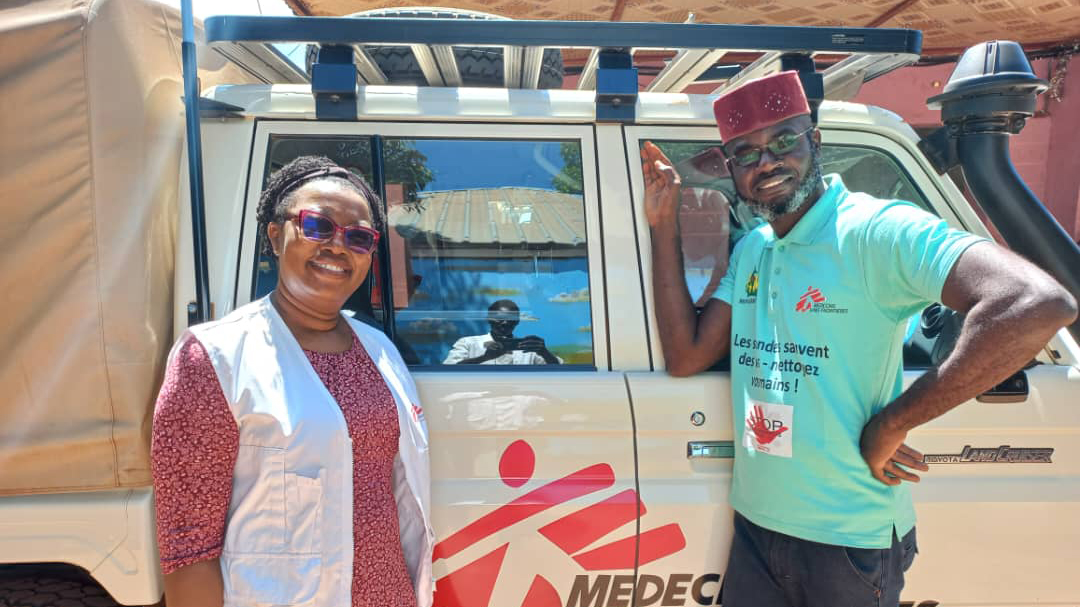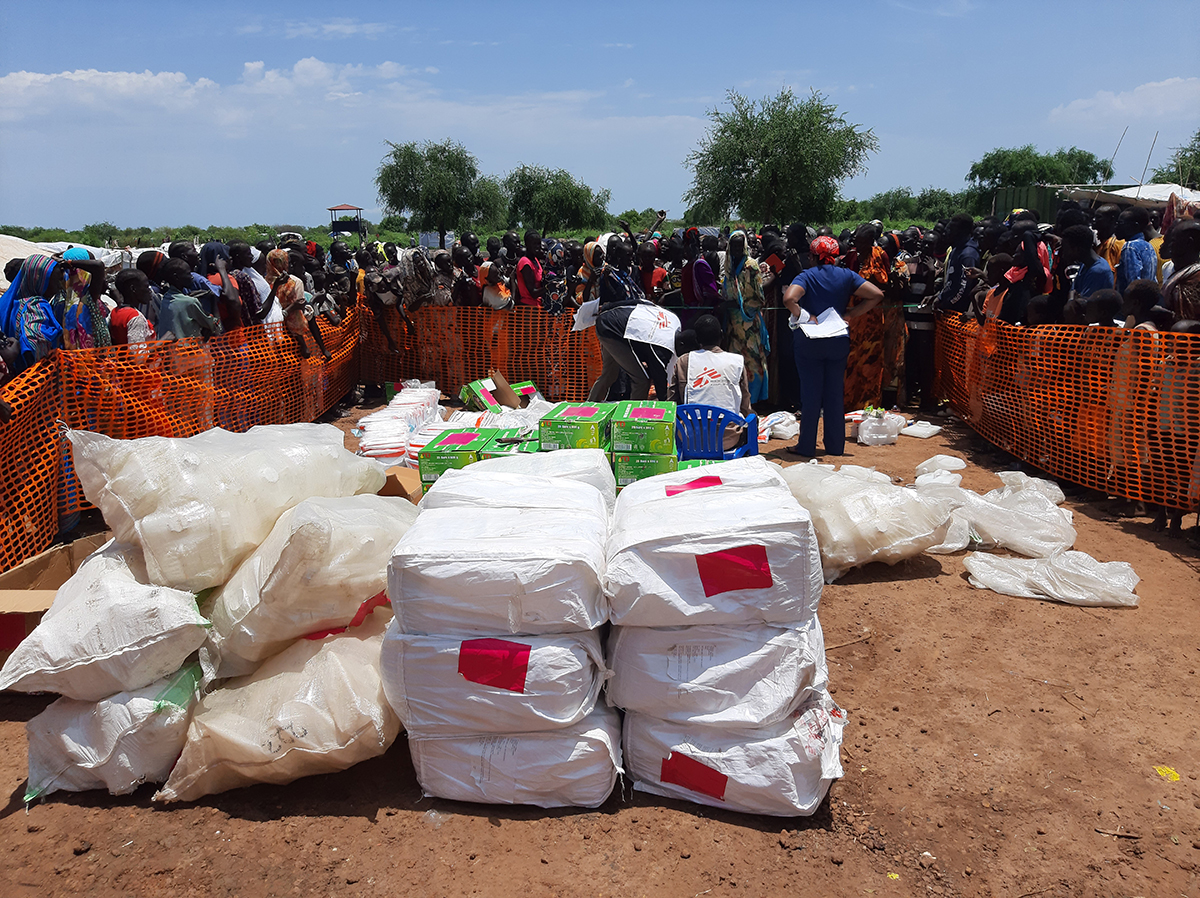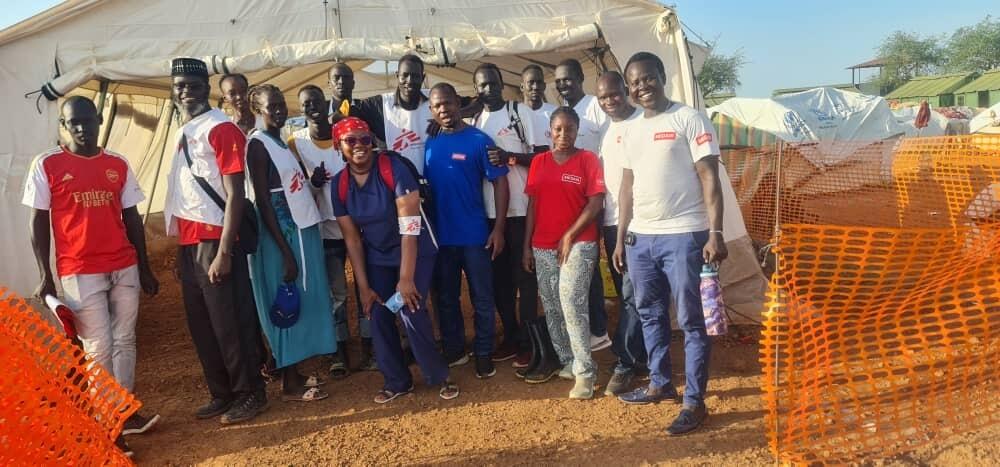South Sudan: Agility in action with MSF’s emergency first responder team
When a fast-moving humanitarian crisis hits South Sudan, Médecins Sans Frontières / Doctors Without Borders (MSF) deploys the specialists: the South Sudan Emergency Response Unit.
Here, Monica Wambui Muchai, an MSF medical advisor, and Abdel Yasser Alassane, an MSF project coordinator, explain how this team of experts acts fast to save lives.
What is an emergency response unit? Isn’t all MSF work about emergencies?
The emergency response unit was set up two years ago, with the goal of being the first responders to breaking crises across South Sudan, including disease outbreaks, natural disasters, and displacement after armed violence.
Our work is different from MSF’s longer-term projects in South Sudan. Those address ongoing humanitarian health needs, for example in a long-established displacement camp, or in a remote community where people have no other access to care.
Our team supports our colleagues in these projects, coming to help when they are facing extraordinary challenges – for example a disease outbreak. But we also work on emergency preparedness and responding to new crises.
What is an example of your team in action?
Last year, large-scale armed conflict broke out in neighbouring Sudan. It’s still going on today. Large numbers of South Sudanese people who had been living in the country decided to seek safety from the violence by returning to South Sudan.
Many of them crossed the border and arrived at Paloich, an area in South Sudan's Upper Nile state. But Paloich doesn’t have the basic infrastructure to support so many people on the move. We got reports that the returnees didn’t have adequate access to critical services such as water and sanitation, shelter, food or essential supplies. They were away from their livelihoods and without protection.
Our information suggested that high numbers of returnees in Paloich were becoming sick and dying. The malnutrition rates among children were reported to be up to 44 percent. We also heard about cases of measles, which spreads very quickly and can be deadly if not treated, especially in young children.
What was the first step?
Because it isn’t safe to travel by road to Paloich from Juba, the capital of South Sudan, the only way to reach these people was by air or via the River Nile. We agreed with the MSF coordination team that we would fly in to help determine how we could provide support.
Once we’d gathered the information we needed, our full team arrived on 17 July and were there for a month.
Heavy rains and flooding often hindered access to the area, and the difficult road conditions meant that returnees often had to walk long distances to get there. They then faced tough living conditions in the camp itself.
Our logisticians took the lead on the distribution of essential relief items that could help reduce the chances of people becoming sick, despite the lack of infrastructure. These included mosquito nets, jerry cans to carry clean water, and soap to prevent the spread of diseases. In the end, we distributed these to 1,381 families
Meanwhile, our medical team got started. Over just one month, they provided 1,965 consultations and treated 162 people for severe malnutrition.
Why did the MSF response last just one month?
Initially, there were few other aid organisations in the area, particularly because the roads weren’t safe to travel. However, by the end of our month there, that had started to change. Our team was able to hand over the activities they had set up to the humanitarian organisation MedAir, along with a donation of medical supplies.
After the initial acute emergency we were responding to, the returnees still have longer-term health needs that need to be met, including top-up vaccination campaigns and strengthening routine vaccinations. However, these can be addressed by other health organisations through things like medical screenings for new arrivals.
This means our team is available to respond to the next emergency.
You had a significant impact in a short space of time. Are there other cases like this?
In the past two years, the Unit has been crucial in responding fast to emergencies in South Sudan. The team has also tackled disease outbreaks including malaria, measles, cholera and hepatitis E, employing a preventive approach to help save lives.
Being well prepared, flexible, and forming strong partnerships with local organisations are some of the key factors that allow the Unit to work effectively, even in challenging environments.
MSF in South Sudan
Our teams work in hospitals and clinics throughout South Sudan, where we run some of our biggest programmes worldwide - operating in crises driven by insecurity and frequent flooding.
As well as providing basic and specialised healthcare, our teams respond to emergencies and disease outbreaks affecting isolated communities, internally displaced people and refugees from Sudan.


